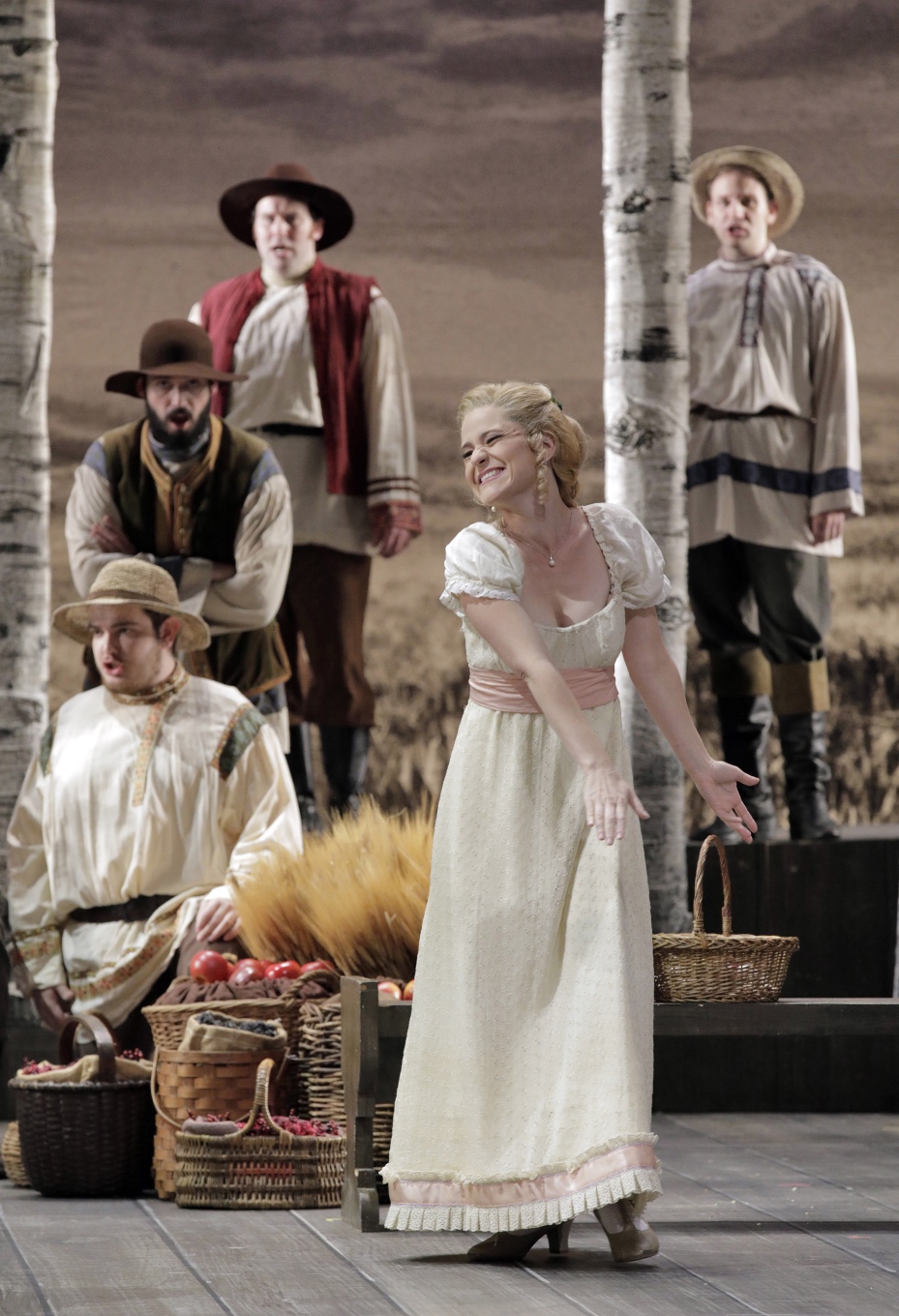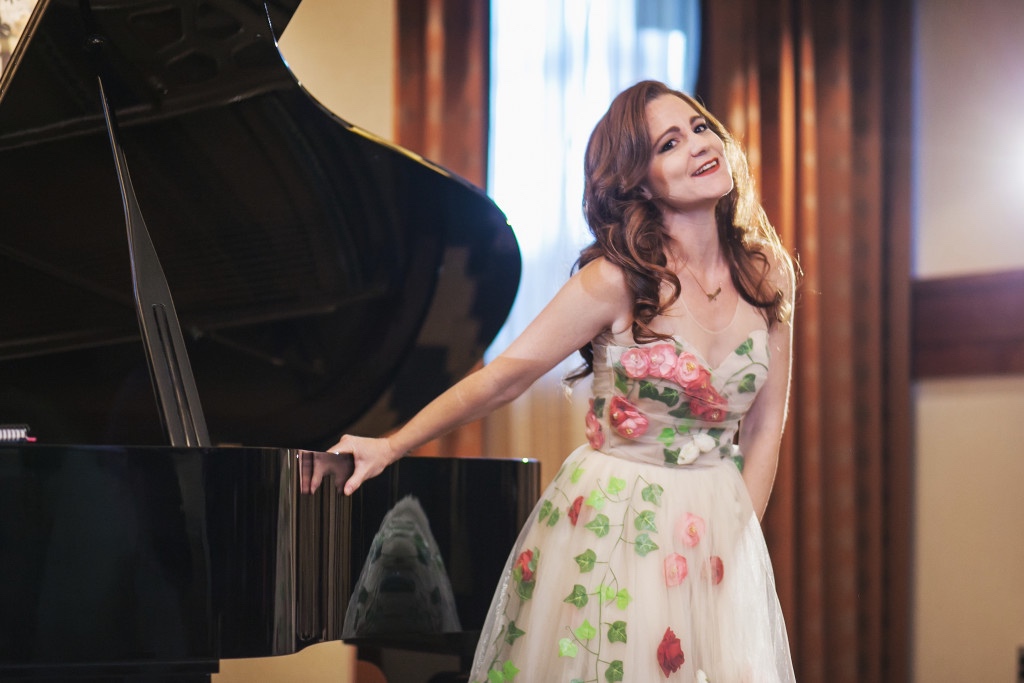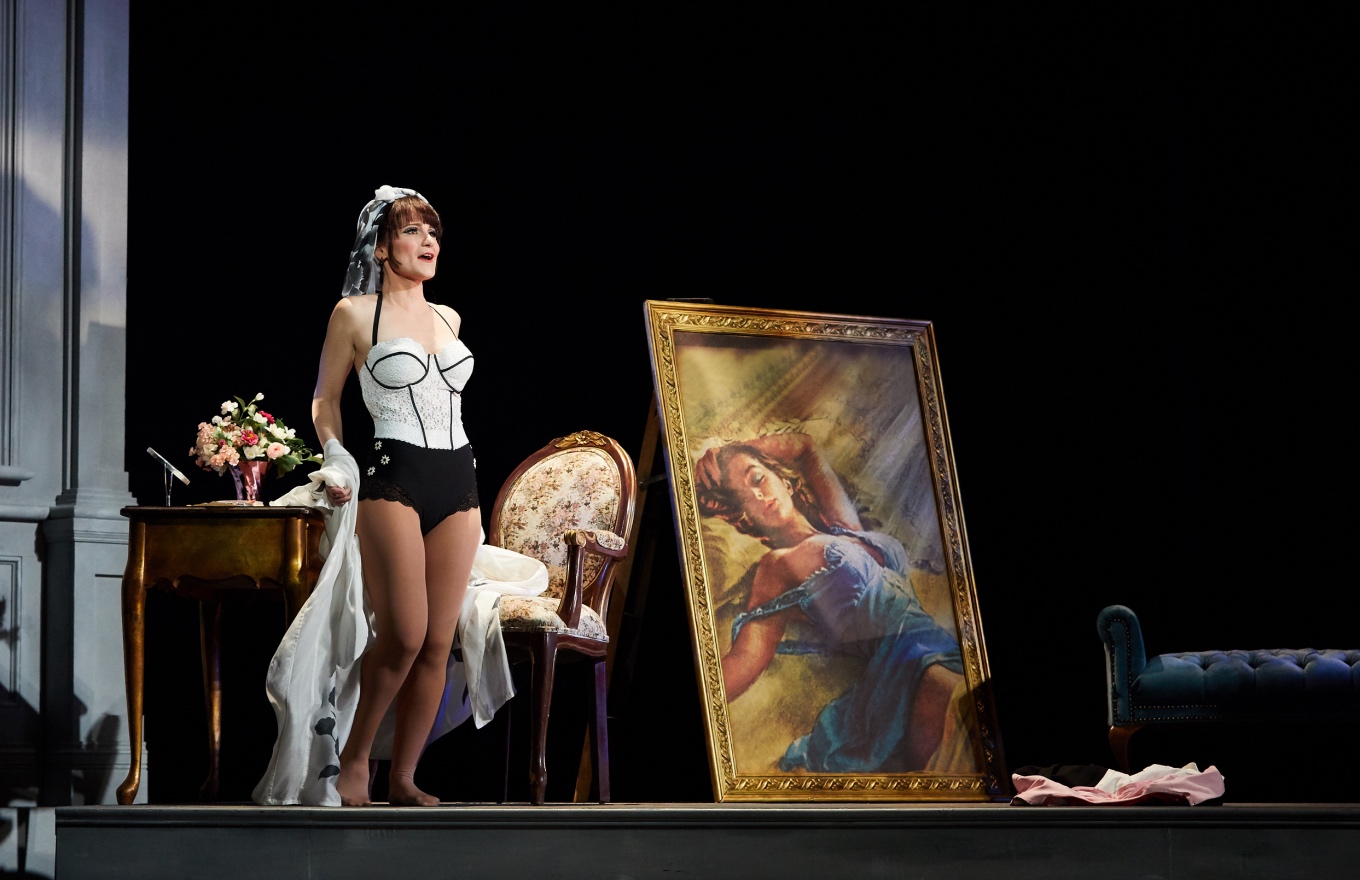
Talking with singers: Megan Marino
InterviewThis month, American-Italian mezzo-soprano Megan Marino will begin a run of Madama Butterfly at Santa Fe Opera, singing Suzuki opposite two casts led by Kelly Kaduce and Ana-María Martínez in the title roles.
Marino is an artist in love with her craft, and she dives into the roles she sings with personal investment. We spoke with her about the emotional rollercoaster of singing Suzuki, and why she likes a wholistic approach to her varied roles, from Hänsel to Olga to Despina.
Why do you sing professionally?
Because I wake up needing to do this every morning. I love getting to play in “grand spectacle imagination land” and be part of taking people away from it all for a few hours; perhaps even making them think twice or better yet, change their minds about something. But seriously, it’s a compulsion, I HAVE to do this. And I’m endlessly thankful that it’s my job as well as my passion.

What kind of woman is Suzuki in Madama Butterfly? What do you think are some common misconceptions about her character?
Very strong, selfless, observant. She knows when to “button it” and when to speak her mind (I could probably learn a little something from her re: my real life…). She is a very deep well, emotionally speaking, and a bit of a “nervous talker” and she and I share those things. Much to my delight, I have found a lot of common ground with her; she’s fairly sassy. I’m learning a lot “from her” and really enjoying our process.
Common misconceptions… I guess that there are some folks who don’t give her enough credit. She’s very complex and there’s a lot of nuance to appreciate. I think that sometimes we see her portrayed as one dimensional and/or just a dutiful servant. The journey and arc of the show is very much hers too. She shares and shoulders a lot of the burdens with and for Cio-Cio San; she really struggles. And we see that the wrongs committed against Cio-Cio San are also very much committed against her too.
We just had our first work-through, and I’m done; none of those tears are forced, they’re just human. In this production, by the time we get to the end, it’s set up so that the audience can most relate to Suzuki’s journey and reactions. They see everything from her vantage point. She knows how it’s all going to end from the moment the Americans enter the house, but stays the course. When Butterfly tells Kate and Sharpless to come back for the boy in a half hour, Suzuki knows. Only a half hour left with the most beautiful, broken, human and then it’s over, everything changes. How does one knowingly shepherd another through their last half hour of life? What would you do?…
Perhaps we all haven’t had these specific, most high stakes experiences, but we’ve all had very relatable “as if” experiences. How many times have we all, in many different stages in our lives, seen beloved friends hopelessly go off the rails? How many of us have lost that loved one that leaves a gaping forever hole in the heart? How many of us have held on so tightly to a “truth” that we know deep down inside will never come to fruition? It’s raw, and aggressively relatable. That’s why we still put up Butterfly after all these years…

What challenges do you find in moving from one operatic style to another throughout the season? How do you make it easier on yourself?
Mental and vocal pacing. I approach everything in the same basic way; learn/research, coach, feel it, etc. I try to stay as ahead of the game as I can re: preparation. My teacher (Braeden Harris) is a dream; we have Facetime/Skype lessons when we can. And I’m very fortunate to have a team of extremely talented, beloved friends spread about various opera houses and academic institutions that I call on regularly to help me rip the bandaid off and get at it.
As for rep, I have a pretty varied career (mezzos, sopranos, young women, old women, trouble-makers, maids, boy children, magical creatures) so each role requires a slightly different “set up” (especially when transitioning from a Despina to an Olga, for example), but I learned fairly recently to sing everything at the same time. They all help each other. I thought for a while that separating things and compartmentalizing was the easiest way to handle things vocally/mentally/emotionally, but I was wrong. Everything at once is best - provides a solid balance in all ways. And it’s OK to make an ugly noise, especially in rehearsal, and in front of all the people you respect - own it. I dare you. It may suck in the moment, but you will be better afterwards, I promise.

What do you know now about the singing career that you wish you knew 10 years ago?
This moment 10 years ago (I was, admittedly, a lost 26 years old) who really wasn’t sure who she was yet, nor did she have her voice in order to make a career; still very much a “disaster.” I would tell her that soon she’ll be singing a lot of (perhaps too much) opera. And I would tell her to learn her languages better, and to work out 1 more day a week. I would tell her to be more patient with herself and others in general and to be more tolerant of messes. And to please be more kind to herself…
The Santa Fe Opera’s production of Madama Butterfly opens June 30. For details and ticket information, click here.

Comments